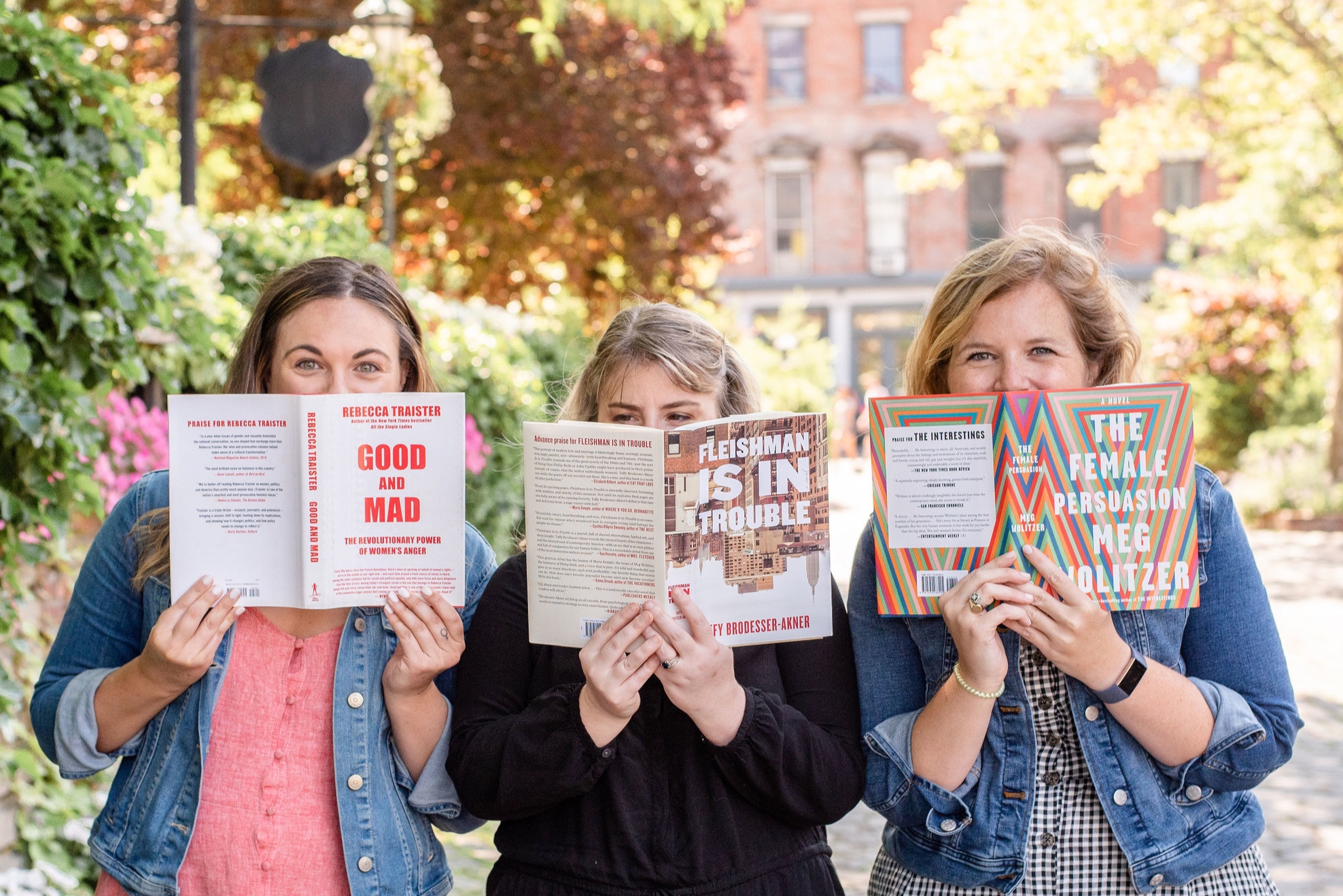Lit Hit List: Women in History for International Women's Day
happy #internationalwomensday! We love a good hashtag holiday, and when it’s celebrating the fairer sex, even better! March is Women’s History Month, so today felt like a good moment to share some books about some amazing women in history. What can I say, this is one of my favorites genres of book?
Obviously, I tried to go with books by women about women, and these are all tailored to some of my favorite periods of history. I’d love to hear what you’d add to this list!
"Becoming" by Michelle Obama: I was one of the last people I know to read this one, I feel like — I didn’t get to it until the beginning of this year (I thought we already had a review on the site, but it looks like we don’t) — and I hate that I waited so long. I loved getting a deeper look into the life of a woman I already admired, as well as her perspective on events that I remember living through. She is such a gifted storyteller, and her story is amazing.
Also try: “What Happened” by Hillary Clinton (honestly, I haven’t been able to get through this one because I cry every time I try, but I bet you’re stronger than I am) | “My Own Words” by Ruth Bader Ginsburg
"The Witches" by Stacy Schiff: One of the things that only becomes more and more evident is that men have always been afraid of smart women, and sometimes they go to absurd efforts to get rid of them (see, e.g., Henry VIII). This is an in-depth look at the Salem Witch Trials in 1692, a moment the author argues that is one of the few times that women are at the center of an American historical moment. It reads at times like a psychological thriller, and it gave me such insight into something I had only heard about briefly in history classes. Note: the writing can be dry and dense, too, so don’t go in expecting a Moira-style thriller.
“Who Cooked the Last Supper” by Rosalind Miles: I feel confident I’ve complained about this somewhere on here before (maybe this review?), but our view of the past is so colored by the fact that it was largely written by men and about men, completely skipping over the most essential half of the population. Not in this should-be-classic by Rosalind Miles, who focuses her work on the unsung contributions of women at great moments of history. I read this book years and years ago, and I still think about it from time to time. It’s funny, but in a laugh so you don’t cry about centuries of oppression kind of way.
“The Immortal Life of Henrietta Sacks” by Rebecca Skloot: Hands down, Henrietta Lacks’ story is one of the coolest I have ever read (yes, I am also really cool), but it is also one of the most heartbreaking. Her cells, for some crazy reason, are immortal — the HeLa cells have fueled American innovation for 60 years. At the same time, Henrietta’s family did not know their matriarch lived on in this way, and they haven’t seen any money from the billions that have been made off her mother’s “contribution.” Rebecca Skloot’s book is one I couldn’t put down, tbh, and I think anyone who likes microhistory would enjoy this one.
“The Life of Elizabeth I” by Alison Weir: I was a British history major, and I took an entire class on Elizabethan England, so I feel like I know Elizabeth Regina better than most. I loved this biography of Elizabeth I by Alison Weir, as she mostly works dispels the myths around this larger-than-life figure: Was she really a Virgin Queen? nope! Could she have ordered the murder of some of her friends and courtiers? seems like it! Was she really one of the most fascinating people in the history of the world? absolutely!
“Eleanor Roosevelt, Volume 3” by Blanche Wiesen Cook: I have long been fascinated by Eleanor Roosevelt, and this three-part series by Blanche Wiesen Cook only made me like her more. Volume 3 was my favorite — it covers World War II, FDR’s death, the founding of the UN, and Eleanor’s last years. What I hadn’t realized fully was how opposed Franklin and Eleanor’s politics were, and how much of a strain that put on their marriage. The author gives an unblinking look at their lives and their marriage, and I enjoyed all of it. In so many ways, Eleanor was lightyears ahead of her time, and in some of those ways, we haven’t even caught up with her visionary point of view.
If you click on one of the links in this article and make a purchase, She’s Full of Lit may receive a small commission. It doesn’t add anything to your price — we promise! Thanks so much for your support.



